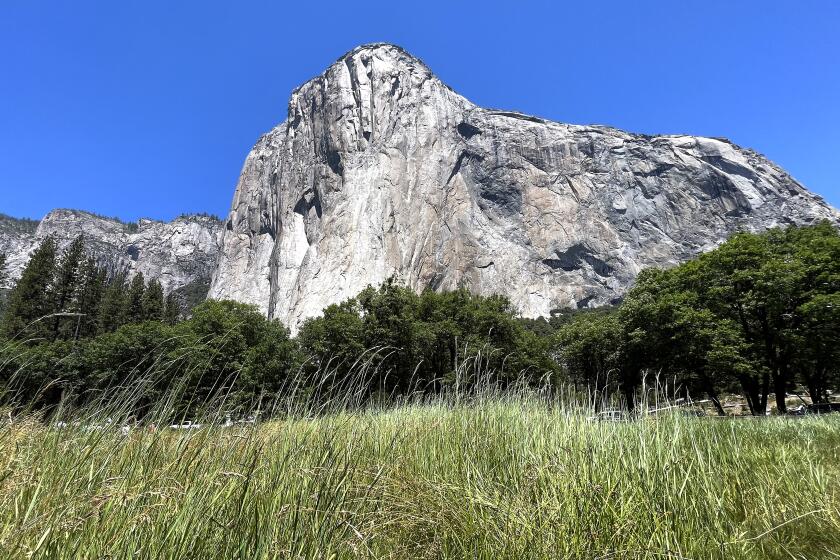Pence promises Israeli lawmakers that U.S. embassy will open in Jerusalem next year
- Share via
Reporting from Jerusalem — Vice President Mike Pence told the Israeli parliament Monday that the United States will move its embassy from Tel Aviv to Jerusalem next year, far faster than the State Department had indicated when President Trump decided last month to recognize the divided holy city as Israel’s capital.
By speeding up the embassy transfer, the White House signaled it was doubling down on its most provocative Middle East policy and would ignore Arab allies who have urged a more measured approach to the politically charged issue.
Trump’s Dec. 6 announcement stunned many world leaders and reversed decades of U.S. policy, which held that the status of Jerusalem should be decided in final Israeli-Palestinian peace negotiations. Palestinians also claim part of Jerusalem as the capital of a future independent state.
“In the weeks ahead, our administration will advance its plan to open the U.S. Embassy in Jerusalem — and that the United States Embassy will open before the end of next year,” Pence told the Knesset, the Israeli parliament.
“By finally recognizing Jerusalem as Israel’s capital, the United States has chosen fact over fiction — and fact is the only true foundation for a just and lasting peace,” he added.
Twelve Arab members and one Jewish member, who had said they would boycott Pence’s speech, stood and shouted when Pence began talking. Several held signs that read, in English and Arabic, “Jerusalem is the capital of Palestine.” Security personnel removed the protesters from the chamber.
State Department officials had said that finding a new embassy site, designing the compound and completing construction could take up to six years and cost $600 million to $1 billion to meet security concerns.
Pence’s remarks suggest the department will instead retrofit the U.S. consulate in Arnona, a neighborhood in West Jerusalem, to serve as the embassy. The consulate now issues visa and offers consular services to Americans in Israel.
Pence, who is visiting Israel for two days after brief stops in Egypt and Jordan, received repeated standing ovations in the Knesset. The body is dominated by hard-right parties and supporters of Prime Minister Benjamin Netanyahu
At one point, when Pence reiterated that the United States would support a two-state solution — the long-held diplomatic goal of Israel and an independent Palestine existing side by side — only leftist members of the Knesset rose to applaud. Netanyahu and the hard-right factions were silent.
Pence also drew applause when he addressed another Trump priority that is popular with the Israeli right: torpedoing the landmark Iranian nuclear deal.
The 2015 accord, which the United States and five other world powers negotiated with Iran, put strict limits on Tehran’s ability to enrich uranium or potentially acquire nuclear weapons in exchange for lifting international sanctions that had crippled the country’s economy.
U.S. intelligence agencies and the United Nations nuclear watchdog agency have said Iran is meeting its obligations under the agreement. But Trump has vowed to withdraw the deal in May, and reimpose energy-related sanctions on Iran, unless it is “fixed” to eliminate sunset clauses and to link it to Iran’s development of ballistic missiles.
“The Iran nuclear deal is a disaster, and the United States of America will no longer certify this ill-conceived agreement” unless the changes are made, Pence said.
Pence met with Netanyahu before he went to the Knesset, and he uttered the phrase American leaders had avoided for years while negotiators sought, so far in vain, to hammer out a peace deal.
“It is my great honor on behalf of the president of the United States to be in Israel’s capital, Jerusalem,” Pence said as Netanyahu beamed at his side.
Netanyahu told reporters that he has welcomed hundreds of world leaders, but that this was the first time a visiting leader could say he was in Israel’s capital.
In Washington, State Department spokeswoman Heather Nauert confirmed that the new embassy will open by the end of 2019, but said decisions on the “safety and security of personnel” were pending.
The consulate in Jerusalem sits near the traditional dividing line between eastern and western parts of the city, often a focal point for anti-Israel and anti-U.S. demonstrations.
On Tuesday, Pence will visit Yad Vashem, Israel’s official memorial to victims of the Holocaust, and the Western Wall in the fabled Old City, home to holy sites for Jews, Muslims and Christians.
He is not scheduled to meet any Palestinians on his visit. The president of the Palestinian Authority, Mahmoud Abbas, had ruled out meeting Pence or joining any negotiations with the Trump administration because of the decision on Jerusalem and the subsequent White House move to slash aid to a U.N. agency that helps Palestinian refugees.
Bennett reported from Jerusalem and Wilkinson reported from Washington
Twitter: @ByBrianBennett
More to Read
Get the L.A. Times Politics newsletter
Deeply reported insights into legislation, politics and policy from Sacramento, Washington and beyond. In your inbox twice per week.
You may occasionally receive promotional content from the Los Angeles Times.












